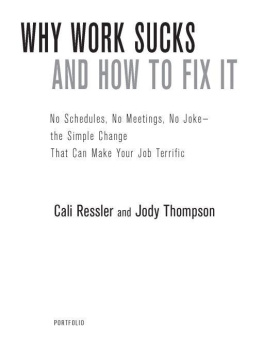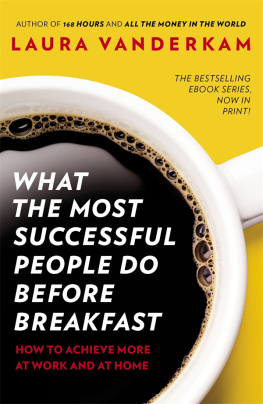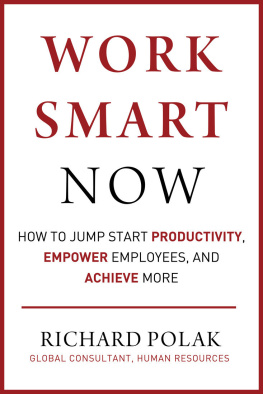Table of Contents
PORTFOLIO
Published by the Penguin Group
Penguin Group (USA) Inc., 375 Hudson Street, New York, New York 10014, U.S.A.
Penguin Group (Canada), 90 Eglinton Avenue East, Suite 700, Toronto, Ontario,
Canada M4P 2Y3 (a division of Pearson Penguin Canada Inc.)
Penguin Books Ltd, 80 Strand, London WC2R 0RL, England
Penguin Ireland, 25 St. Stephens Green, Dublin 2, Ireland
(a division of Penguin Books Ltd)
Penguin Books Australia Ltd, 250 Camberwell Road, Camberwell, Victoria 3124, Australia
(a division of Pearson Australia Group Pty Ltd)
Penguin Books India Pvt Ltd, 11 Community Centre, Panchsheel Park,
New Delhi-110 017, India
Penguin Group (NZ), 67 Apollo Drive, Rosedale, North Shore 0632, New Zealand
(a division of Pearson New Zealand Ltd)
Penguin Books (South Africa) (Pty) Ltd, 24 Sturdee Avenue, Rosebank,
Johannesburg 2196, South Africa
Penguin Books Ltd, Registered Offices: 80 Strand, London WC2R 0RL, England
First published in 2008 by Portfolio, a member of Penguin Group (USA) Inc.
Copyright Thompson & Ressler, LLC, 2008
All rights reserved
LIBRARY OF CONGRESS CATALOGING-IN-PUBLICATION DATA
Ressler, Cali.
Why work sucks and how to fix it / Cali Ressler and Jody Thompson.
p. cm.
Includes index.
eISBN : 978-1-436-21421-6
1. Job satisfaction. 2. Quality of work life. 3. Personnel management.
I. Thompson, Jody. II. Title.
HF5549.5.J63R38 2008
658.314dc22 2008001597
Without limiting the rights under copyright reserved above, no part of this publication may be reproduced, stored in or introduced into a retrieval system, or transmitted, in any form or by any means (electronic, mechanical, photocopying, recording or otherwise), without the prior written permission of both the copyright owner and the above publisher of this book.
The scanning, uploading, and distribution of this book via the Internet or via any other means without the permission of the publisher is illegal and punishable by law. Please purchase only authorized electronic editions and do not participate in or encourage electronic piracy of copyrightable materials. Your support of the authors rights is appreciated.
http://us.penguingroup.com
To people who work, and know theres a better way to do it.
FOREWORD
Success, particularly in business, comes when you can believe in peoplenot just those with fancy titles, but every single person with unique perspective, passion, talent, and knowledge. Thats whats beautiful about what Cali and Jody have done. I love that it wasnt a top-down initiative but the results of their insight into what was best for the business.
Ive always been convinced that the best ideas come from those who are closest to the customer, the customer in this case being our own employees. What Cali and Jody did was remarkable because they gave the people at Best Buy not what they thought they needed to succeed at their jobs but what they really needed to succeed at their jobseven if it took the organization in a direction no one could have imagined.
The second thing that impresses me about ROWE is where its going. True innovation always comes with challenge and change, and, most important, tremendous opportunities to learn. At its heart ROWE is a chance for everyone to learn a better way to work. There is nothing fancy about this idea, and there is no reason why it cant work everywhere. The approach lets people do what theyre good at instead of what you think they should be good at. It encourages people to contribute rather than just show up and grind out their days.
As more people embrace this idea, more will have to concede that work is a human endeavor. Instead of shying away from that fact, embrace it. Celebrate it. Instead of insulating your organization from ideas like ROWE, tap into that humanity. Tap into that opportunity to learn.
The trend for successful companies is making them more human, not less human. It wasnt that long ago that Best Buy was a regional electronics chain. We are now a global company with 140,000 employees. What has allowed this to happen has less to do with what we sell than how weve created a distinctly human culture that lets people have fun while working hard, that lets them be themselves, that trusts them to do their jobs. ROWE fits in perfectly with those ideals.
We have also embraced this new way of working at Best Buy because its good for business. Engaged employees are more productive, more innovative, more committed. It all gets back to that idea of unleashing the natural strengths and talents of your people. Im eager to see where ROWE goes as more business leaders wake up to the fact that you have to pay more than lip service to the happiness and the development of your employees. Our people are what matter most.
Brad Anderson, CEO, Best Buy
INTRODUCTION
Weve Had Enough... Have You?
This book is based on a simple idea: Our beliefs about workforty hours, Monday through Friday, eight to fiveare outdated, outmoded, out to lunch. Every day people go to work and waste their time, their companys time, and their lives in a system based on assumptionsabout how work gets done and what work looks likethat dont apply in todays global, 24/7 economy.
We go to work and give everything we have and are treated like were children who, if left unattended, will steal candy.
We go to work and watch someone who isnt very good at their job get promoted because they got in earlier and stayed later than anyone else.
We go to work and sit through overlong, overstaffed meetings to talk about the next overlong, overstaffed meeting.
We see talented, competent, productive people get penalized for having kids, for not being good at office politics, for being a little different.
We go to work in the Information Age, but the nature of the workplace hasnt fundamentally changed since the Industrial Age.
But most of allmost tragically of allwe play the game. We play the game even though we know in our heart of hearts the game doesnt make any sense.
Why do you think Sunday night is tinged with dread? That is you telling yourself that the way we work is unhealthy. That life isnt meant to be lived this way. The modern workplace makes people physically and mentally sick, undermines families, and wastes precious time and energy. Everybody knows work sucks and yet we do nothing. If the dismal nature of work werent the norm; if our assumptions and expectations about work werent so ingrained; if, for example, work were some kind of new disease that suddenly appeared and cost businesses billions and ruined peoples lives, you can bet that we would be marshaling our collective resources to find a cure.
So why doesnt it change?
Maybe because we assume that work has to be drudgery. (If it were fun it would be play, right?) |
Maybe because we have been brought up to believe that by definition work is unproductive, political, and unfair. |
Maybe because no one has proposed a reasonable, effective alternative. |
Everywhere there are solutions that are not solutions.
The solution is not flextime. Flextime is a joke.
The solution is not work-life balance. Under the current system, balance is impossible.
The answer is not getting better organized, or No-Meeting Wednesdays, or setting your alarm fifteen minutes early to beat the morning rush, or spending a Saturday making all your lunches for the month.






